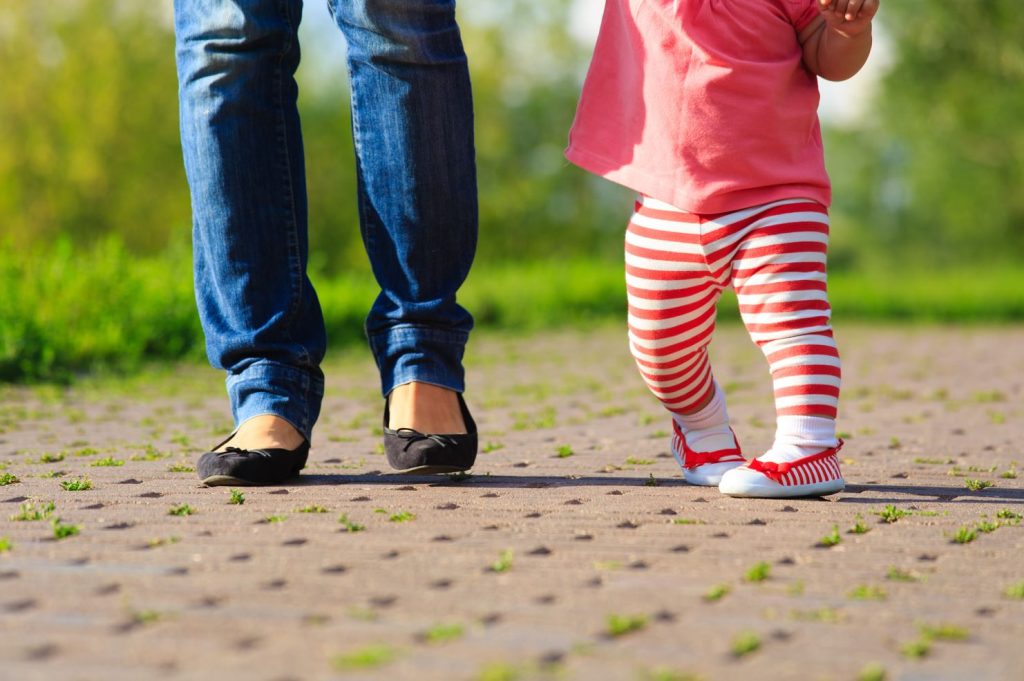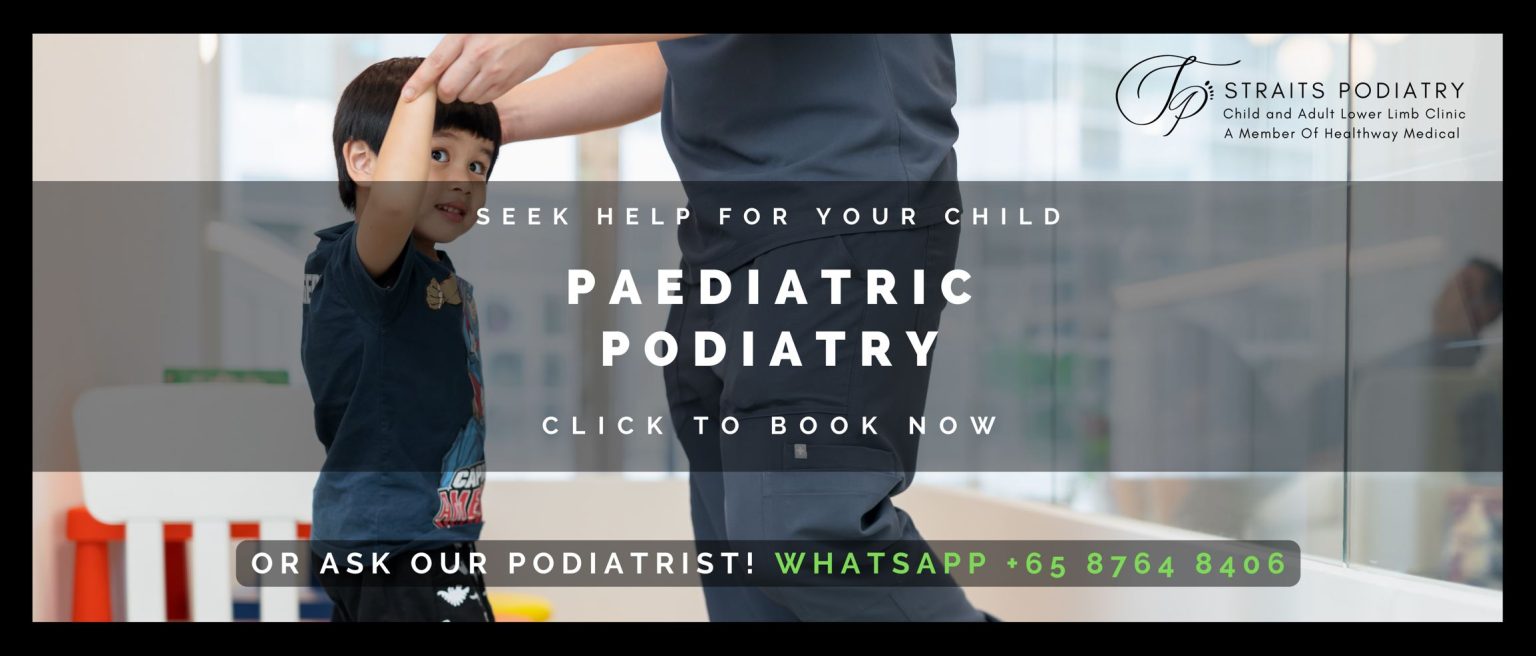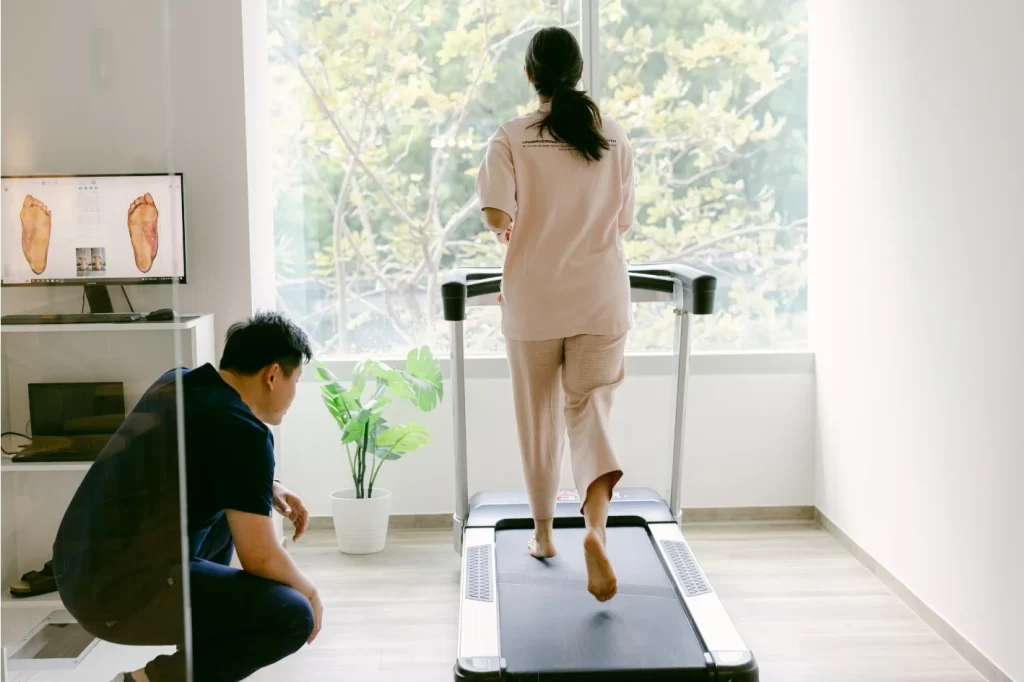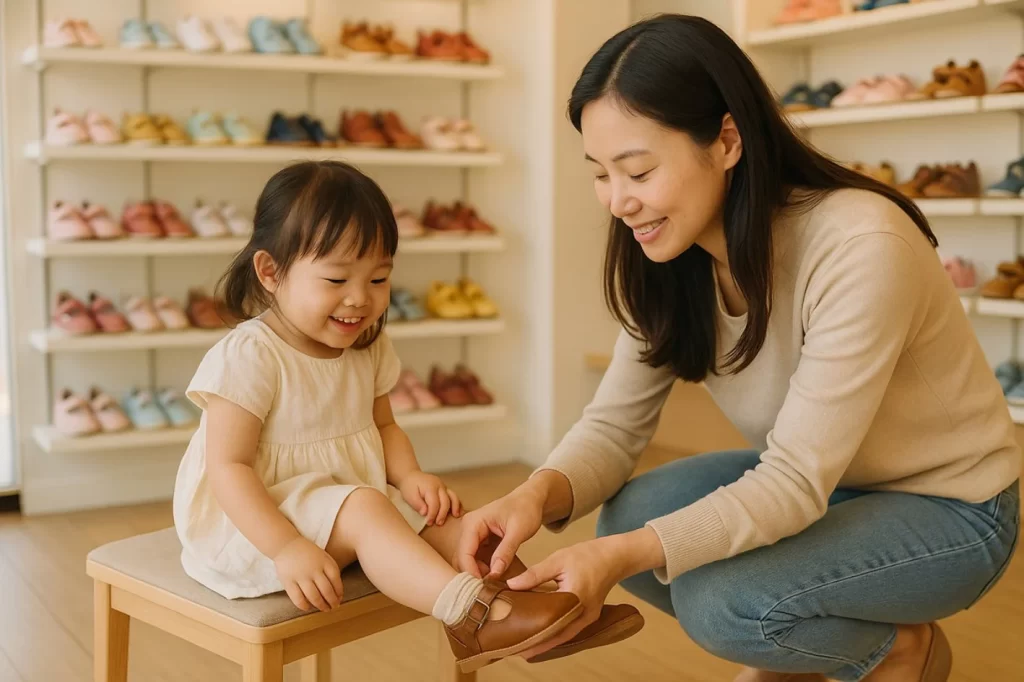At Straits Podiatry, we believe that walking is an essential part of life and understand the importance of walking comfortably and pain-free. We specialize in managing foot and ankle problems, including in-toe and out-toe walking in children. We aim to provide the best possible care to our patients in Singapore.
Parents’ common concerns about their children’s walking patterns are in-toe and out-toe walking. This article will discuss what in-toe and out-toe walking are, how they affect the feet and legs, and the available management options.
In-toe Walking
In-toe walking, also known as pigeon-toe walking, is where the feet turn inward instead of pointing straight ahead. Genetic factors, muscle weakness or tightness, and developmental problems can cause this condition.
In-toe walking can lead to foot and ankle pain, especially in the little toe and outer foot. The condition can also cause ankle sprains, knee pain, instability, and difficulty with balance and coordination.

Out-toe Walking
Out-toe walking, also known as duck feet walking, is a condition where the feet turn outward instead of pointing straight ahead. Issues such as flat feet, muscle weakness or tightness, and changes in bony development can cause this condition.
Out-toe walking can lead to foot and ankle pain, most often at the inner ankle. The condition can also cause knee pain, tired legs, and difficulty with balance and coordination.
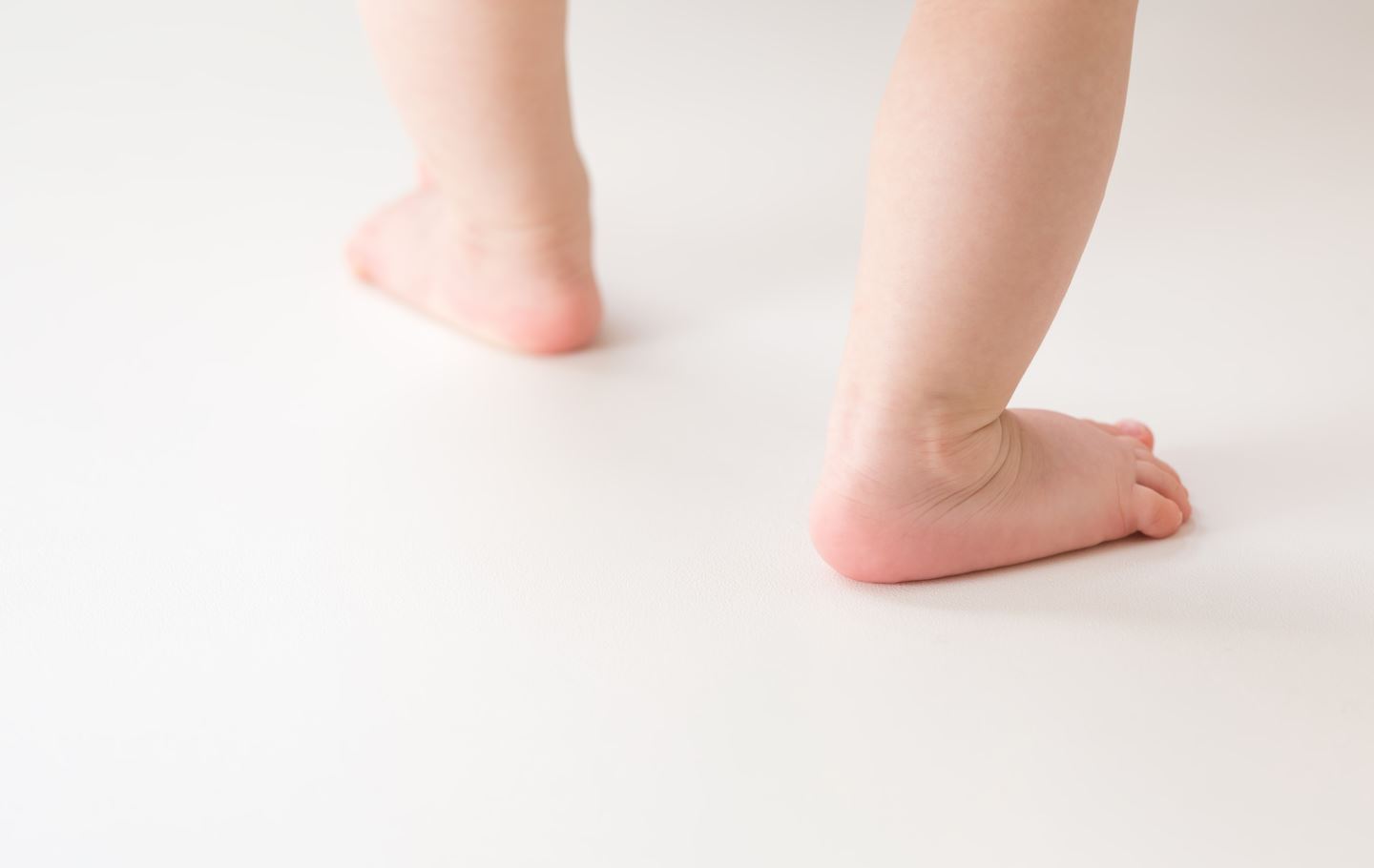
Diagnosis and Management
At Straits Podiatry, we will thoroughly evaluate the feet and legs to diagnose in-toe and out-toe walking. We use a combination of physical examination and gait analysis to determine the cause and severity of the condition.
Management options for in-toe and out-toe walking may include custom orthotics, paediatric foot braces, physical therapy, stretching, and strengthening exercises. Getting a positive outcome requires commitment from parents and children, so making the management fun for your child is important.
Frequently Asked Questions
What is In-toe or Out-toe Gait?
In-toe and out-toe gait refer to walking patterns where the feet point inward or outward instead of straight ahead. These walking patterns are usually noticed in toddlers and young children and can cause concern for parents. In-toe walking is also called “pigeon-toed” walking, while out-toe walking is sometimes called “duck walking.”
What Causes Out-toe Walking?
Out-toe walking can have several underlying causes, including:
- Hip problems: In some cases, hip problems can cause out-toeing. Hip conditions like hip dysplasia can affect the alignment of the legs, leading to the walking pattern.
- Foot problems: Some foot conditions, such as metatarsus adductus or flat feet, can cause out-toeing.
- Cerebral palsy: Children with cerebral palsy may have difficulty controlling their leg muscles, leading to an out-toe or in-toe walking pattern.
When Should I Worry About Out-toeing?
Out-toe walking usually starts in toddlers and young children, but it’s important to note that it’s not always a cause for concern. However, you should speak to a podiatrist if you notice any of the following:
- Your child’s out-toeing is severe, and their feet turn more than 30 degrees outward.
- Your child’s out-toeing is getting worse over time.
- Your child is experiencing pain or discomfort when walking or running.
- Your child is showing other symptoms, such as limping or toe-walking.
Why is In or Out-toeing Bad?
In-toe and out-toe walking can affect a child’s development in several ways. For example:
- In-toeing and out-toeing can affect a child’s balance and coordination, leading to falls and injuries.
- In-toeing and out-toeing can cause hip and knee problems, leading to pain and discomfort.
- In-toeing and out-toeing can affect a child’s self-esteem and confidence, especially as they age.
Conclusion
In-toe and out-toe walking can concern parents, but it is important to understand that we can manage these conditions with proper diagnosis and care. At Straits Podiatry, we are committed to providing the best possible care to your child in Singapore. Schedule an appointment with us if you have concerns about your child’s walking pattern.
If you’re looking for a trusted and experienced podiatrist in Singapore, look no further than Straits Podiatry. Contact us today to schedule your appointment and take the first step towards pain-free walking.

Jackie Tey
Chief Podiatrist, B.Pod(Hons). Your foot and lower limb specialist passionate about raising awareness for foot and lower limb health.

